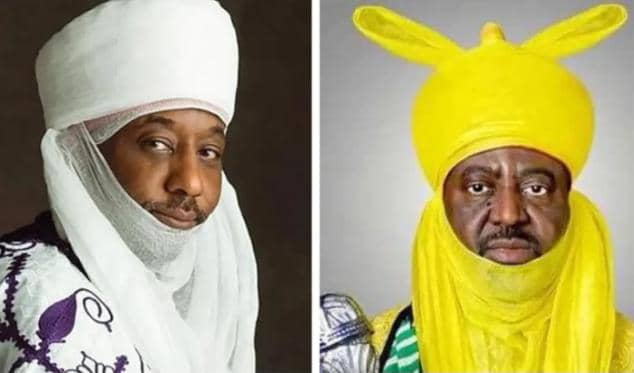A prominent civil society coalition in Kano has called on the Supreme Court of Nigeria to expedite its decision on the ongoing legal battle over the Kano Emirate, warning that continued delays are intensifying political unrest and anxiety across the state.
Diaspora Digital Media (DDM) reports that the appeal was made on Thursday during a press conference organized by the Coalition of Political Analysts and Democracy Protectors in Kano.
The group expressed grave concern over the prolonged uncertainty surrounding the emirship dispute, stating that it threatens peace, public order, and political stability in Kano State.
The group’s convener, Al-Amin Albarra, speaking at the press briefing, emphasized that the lack of a definitive ruling has created widespread unease and growing divisions among the people of Kano.
He warned that failure to resolve the matter urgently could provoke civil unrest and deepen the political crisis brewing in the state.
“The prolonged uncertainty is increasing tension and could lead to public disorder,” Albarra stated. “The Supreme Court must act swiftly to bring clarity and justice.”
The legal battle centers around Aminu Babba DanAgundi, a senior figure within the Kano Emirate Council, who is challenging the reinstatement of Muhammadu Sanusi II as the 16th Emir of Kano.
DanAgundi seeks to nullify an earlier court ruling that confirmed Sanusi’s return to the throne, which consequently displaced the 15th Emir, Aminu Ado Bayero.
The court decision that reinstated Sanusi II sparked a wave of political and ethnic reactions, with both factions drawing considerable support from different sections of the Kano populace.
The resulting divide has heightened tension across the ancient city and placed the state’s fragile peace under significant strain.
Albarra noted that while the matter may appear to revolve around traditional leadership, it is deeply rooted in constitutional and political implications. “This is not just about traditional leadership.
It raises critical constitutional questions regarding executive powers, due process, and the autonomy of traditional institutions.”
The coalition appealed to the Supreme Court to rise above political distractions and issue a ruling that would serve as a legal precedent for similar cases across Nigeria.
A timely verdict, the group argued, would not only settle the Kano dispute but also help prevent undue political interference in traditional institutions nationwide.
“The people are watching, and their patience is wearing thin.
The judiciary must live up to its responsibility,” Albarra concluded.
As of press time, no date has been officially fixed by the Supreme Court for judgment on the matter.
Post Views: 356






